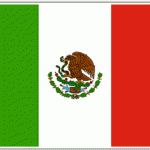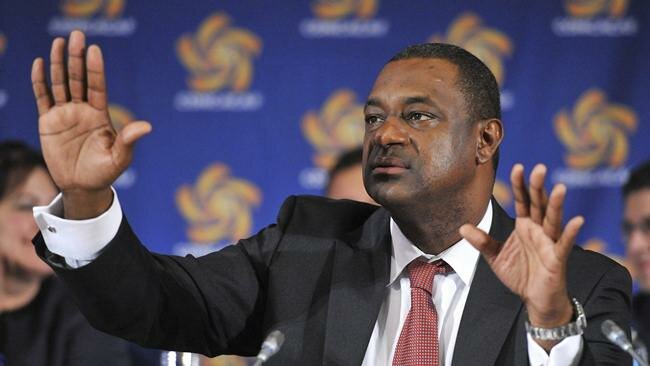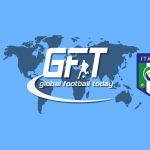The Japanese national soccer team is, if nothing else, consistent.
They’ve won the AFC Asian Cup more than any other Asian nation and the last time they didn’t qualify for the FIFA World Cup was 1994. They just locked up the first spot in 2014 for a team not named Brazil and there’s no reason to think they’re about to slow down. They are led by Italian head coach Alberto Zaccheroni, who has experimented with his preferred 3-4-3 formation ever since taking the job after the conclusion of Japan’s 2010 World Cup campaign.
HOW THEY GOT HERE
Japan won the 2011 AFC Asian Cup (their fourth Asian title) to cement their place in the 2013 Confederations Cup. They beat the other two powerhouses of Asia, South Korea and Australia, in the semifinals and final respectively. With their place in the 2014 World Cup locked up, the Japanese are free to use this tournament as an opportunity to prepare against stiff competition. They’ll be joining Italy, Mexico, and hosts Brazil and they will relish the chance to compete against high caliber opposition.
WHY JAPAN WILL WIN THE TOURNAMENT
Japan is a very technical side that values possession and discipline. They have a lot of creative forces who can give opposing defenses fits. Keisuke Honda (CSKA Moscow) and Shinji Kagawa (Manchester United) are the household names, but there are other equally valuable individuals throughout this squad. Shinji Okazaki, who plays for Stuttgart in the Bundesliga, was the leading scorer during the 2011 Asian Cup run and fullback Atsuto Uchida is very underrated and extremely valuable given the 3-4-3 formation Zaccheroni prefers. Uchida plys his trade for UEFA Champions League participants Schalke 04; also of the Bundesliga where many more players on this squad make their living.
Their group will difficult to get out of, but Mexico is currently in crisis and Italy doesn’t usually take tournaments these “lesser” tournaments very seriously. They have the talent to challenge Brazil for the top spot in the group. The other group has Spain, Uruguay, Nigeria, and Tahiti. The Japanese are capable of beating three of those teams. They’ll need some help, but watch out for a run similar to that of the United States in 2009.
WHY JAPAN WON’T WIN THE TOURNAMENT
The biggest knock on Japan has always been their lack of players with great physical stature and strength. They get out muscled by a lot of teams. The way you beat Japan is to physically rough them up and try to take them out of their rhythm. They lack a traditional No.9 striker who can go stride for stride with the big, strong center backs that Brazil and Italy deploy. And one of the reasons the 3-4-3 is such a good fit for them is because they have a dearth of physical center backs who can slow down big, strong center forwards.
They’ll struggle to keep goals out of the back of the net against the likes of Neymar, Mario Balotelli, and Chicharito. They’re probably the third best team in this group and they’ll need some help to make it to the final.
PLAYER TO WATCH: SHINJI OKAZAKI
Although the Stuttgart forward has seen his playing time drop in Germany, he continues to do well for the national team. He led them in scoring in the 2011 Asian Cup and he scored the winner against Iraq that clinched their 2014 spot. It was his third goal in three appearances in 2013. He’s not very big, but he’s a clinical finisher and he gets his service from Honda and Kagawa. If Japan are going to advance, he’s going to be the one who scores the goals.
ROSTER
Goalkeepers (3): Eiji Kawashima (Standard Liege-BEL), Shusaku Nishikawa (Sanfrecce Hiroshima-JPN), Shuichi Gonda (FC Tokyo-JPN)
Defenders (8): Masahiko Inoha (Jubilo Iwata-JPN), Gotoku Sakai (VfB Stuttgart-GER), Yuto Nagatomo (FC Internazionale-ITA), Atusto Uchida (Schalke 04-GER), Yasuyuki Konno (Gamba Osaka-JPN), Yuzo Kurihara (Yokohama F-Marinos-JPN), Hiroki Sakai (Hannover 96-GER), Maya Yoshida (Southampton FC-ENG)
Midfielders (9): Keisuke Honda (CSKA Moscow-RUS), Yasuhito Endo (Gamba Osaka-JPN), Hiroshi Kiyotake (FC Nuernberg-GER), Shinji Kagawa (Manchester United-ENG), Hajime Hosogai (Bayer 04 Leverkusen-GER), Kengo Nakamura (Kawasaki Frontale-JPN), Makoto Hasebe (VfL Wolfsburg-GER), Takashi Inui (Eintracht Frankfurt-GER), Hideto Takahashi (FC Tokyo-JPN)
Forwards (3): Shinji Okazaki (VfB Stuttgart-GER), Mike Havenaar (Vitesse Arnhem-NED), Ryoichi Maeda (Jubilo Iwata-JPN)




Connect with GFT